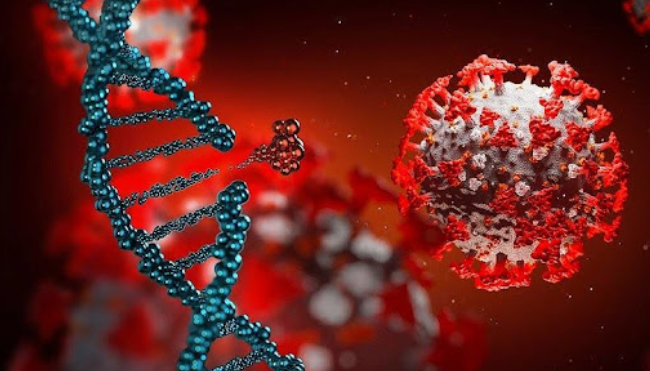Understanding the Genetic basis of Congenital Heart Disease
March 17, 2025 | Contributed by Navaneeth R
It is heartbreaking to see that some babies suffer from significant health challenges that are present in them even before they are born. A large chunk of these diseases which are present at birth involves structural and functional abnormalities of the heart and they are collectively termed Congenital heart diseases (CHD). CHD occurs in approximately 1.3% of live births in the world, making it one of the most common congenital disorders.

The spectrum of CHD involves numerous conditions; some may be simple as a small hole in the heart while some of these conditions are complex structural abnormalities that can result in significant mortality and morbidity. When we see an innocent child suffering from such a serious disease, we are compelled to ask what causes it in the first place. Genetics play an important role in the development of CHD, although it is not the only reason. Having a genetic basis means that some of these defects can be seen in subsequent pregnancies of a couple having a child with CHD, making it even more relevant to know.
Genetics may seem complicated to understand but it can be broken down into simple concepts. Our DNA is the blueprint that contains all the information required for our growth, development and functioning. The parts of DNA responsible for specific functions are called genes and they are present in structures called chromosomes, which are essentially made of DNA. Our cells have a definite number of chromosomes. To simply put, any change in the normal chromosome number or structure as well as any alteration to a gene, called mutation, can result in a genetic disease.
Some of these unwanted changes can involve genes that are responsible for the normal development and functioning of the heart and impairment in these genes can lead to congenital heart disease. Apart from directly disrupting the normal heart development and functioning, some of these mutations can make a baby more susceptible to developing CHD when exposed to certain environmental factors.

Why do these changes occur at the genetic level? Some of these defective genes are inherited from the parents, some result from abnormal cell division during gamete formation while others acquire mutations during the fetal period. Apart from the inherited mutations, many are often spontaneous and unpredictable.
There are many genetic disorders that are associated with CHD. Down syndrome, which is the most common chromosomal anomaly, is associated with heart lesions like ventricular septal defect and tetralogy of Fallot. Other inherited conditions like DiGeorge syndrome, Turner syndrome, Noonan syndrome and many others are also associated with heart defects.
Understanding the genetic basis of CHD can be valuable in many ways. Families with a known history of CHD should seek genetic counseling to understand their risks in subsequent pregnancies. It is also possible to do genetic testing before birth that can result in an early diagnosis and management. Identifying the specific underlying cause can also influence the treatment received by the child in some cases.

The medical field has undergone huge advances in the past few decades which has enabled us to effectively manage CHD, ranging from providing simple hole in heart treatment to performing complex lifesaving heart surgeries. We also have an advanced understanding of various genetic conditions related to CHD. It is important to be aware of this association which can help with the overall management and family planning. Genesis Foundation, a child heart foundation that strives to provide treatment for CHD in underprivileged children, has made a lot of contributions in creating awareness regarding this matter. The more we know about CHD, the better attention the affected children can get.
Understanding CHD is the first step toward better care and prevention. To explore more articles, research, and resources on congenital heart diseases, visit: https://www.genesis-foundation.net/about-congenital-heart-defects.
References:
- Kliegman RM, St. Geme JW. Nelson Textbook of Pediatrics. 22nd ed. Chapter 473: Epidemiology and Genetic basis of Congenital heart disease
- Ghai Essential Pediatrics. 10th edition
- Genetics of congenital heart disease.Circulation research – AHA journals
https://doi.org/10.1161/CIRCRESAHA.112.300853.

